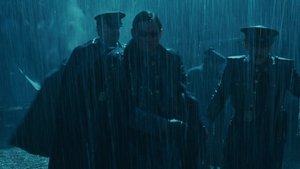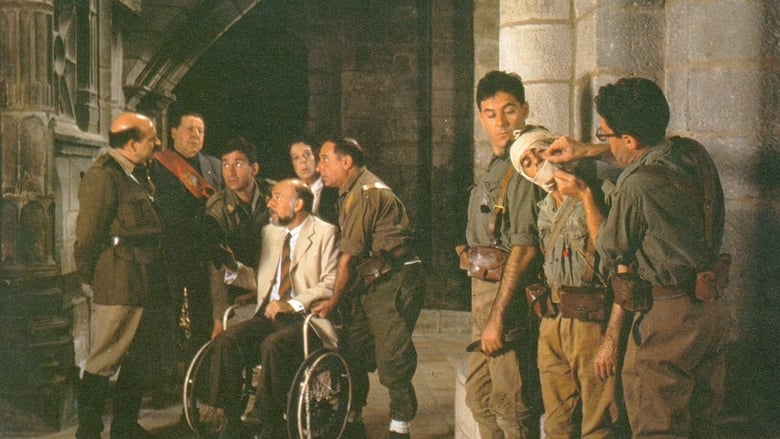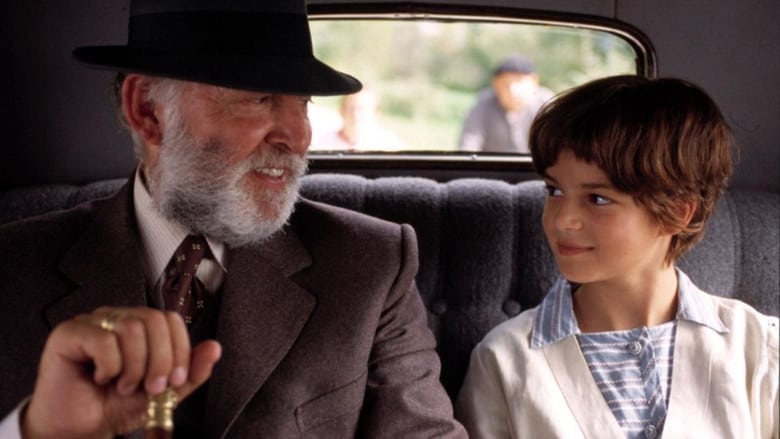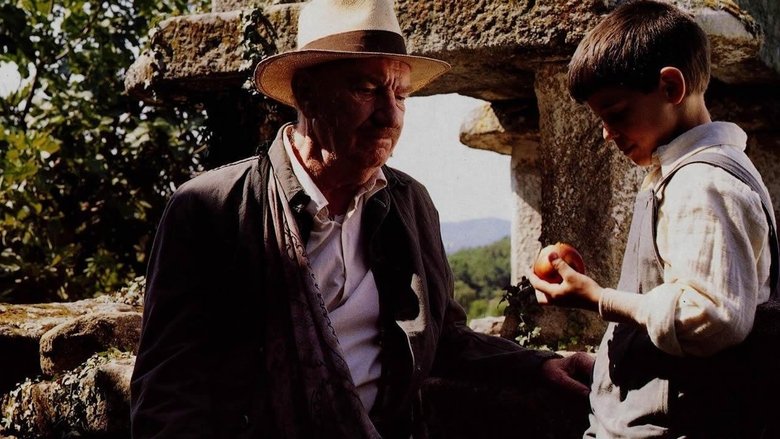Movies about Spanish history
Explore compelling cinematic journeys through Spain's complex past. From civil war dramas to historical epics, these films offer unique perspectives on pivotal moments.



Spanish cinema has a profound connection to the nation's history, often serving as a mirror reflecting its turbulent past and enduring spirit. Many of the most iconic Spanish films delve into key periods, particularly the Spanish Civil War (1936-1939) and the subsequent Franco dictatorship (1939-1975). These eras left deep scars on the collective memory, and filmmakers have repeatedly returned to them to explore themes of trauma, memory, resistance, and the fight for freedom.
Films set during the Civil War, like Pan's Labyrinth or The Spirit of the Beehive, often use historical backdrops to tell deeply personal or allegorical stories, blending harsh reality with elements of fantasy or childhood innocence to process unimaginable events. Others, such as The Sea Inside, while not strictly historical fiction, touch upon the social and political climate of specific periods in Spain.
Beyond the Civil War and Francoism, Spanish cinema also looks further back, as seen in classics like Los últimos de Filipinas, depicting the end of Spain's colonial era. What unites many of these films is their willingness to confront difficult truths, whether through stark realism, dark humor, or poignant drama, offering viewers not just historical context but also a deep emotional connection to the human experiences shaped by these times. They are essential viewing for anyone seeking to understand the soul of Spain through its cinematic heritage.
9. Los últimos de Filipinas (1945)
Travel back to the end of a colonial era with 'Los últimos de Filipinas' (The Last Stand in the Philippines). This classic Spanish film from 1945 depicts the incredible true story of the Siege of Baler.
It recounts how a small group of Spanish soldiers held out in a church against Filipino insurgents for nearly a year, unaware that the Spanish-American War was over and Spain had surrendered the Philippines. Their tenacity earned them the nickname 'the last of the Philippines'.
Made shortly after the Spanish Civil War, the film served partly as a nationalist epic, highlighting themes of heroism and duty. While a product of its time, it tells a fascinating story of endurance against impossible odds. It's a look at a specific, dramatic event marking the definitive end of the Spanish Empire in Asia. A piece of Spanish cinematic history depicting a significant historical footnote.

8. The Executioner (1963)
Prepare for dark, dark humor! Luis García Berlanga strikes again with 'The Executioner' (El verdugo), a scathing satire from 1963, made under the nose of the Franco regime.
The film tells the story of a timid undertaker who is pressured into marrying the daughter of a state executioner and taking over his job to get a subsidized apartment. The catch? He has to actually perform executions when required.
'The Executioner' is a masterclass in black comedy, expertly exposing the absurdities and hypocrisies of the Francoist bureaucracy and its stance on capital punishment. The film caused considerable controversy upon its release. It's a courageous and hilariously grim critique of a society where individuals are trapped by circumstance and systemic cruelty. A must-see for fans of satirical cinema and Spanish history.

7. The Hunt (1966)
Get ready for intense psychological drama! Carlos Saura's 'The Hunt' (La caza), made in 1966 during the Franco regime, is a tense and allegorical film about the lingering trauma of the Spanish Civil War.
Three middle-aged men, veterans of the Nationalist side, gather for a rabbit hunt in the same arid landscape where they once fought. As the day progresses, old resentments, unhealed wounds, and suppressed violence surface.
Saura uses the hunting metaphor brilliantly to explore the psychological scars left by the conflict. The film's stark, realistic style and claustrophobic atmosphere earned it the Silver Bear for Best Director at the Berlin Film Festival. It's a powerful, unsettling examination of how the past continues to haunt the present and the destructive nature of unresolved conflict. A key film from a master of Spanish cinema.

6. El Sur (1983)
Experience a poignant coming-of-age story set against the backdrop of post-Civil War Spain. Víctor Erice's 'El Sur' (The South) is an unfinished masterpiece, yet what exists is profoundly beautiful and evocative.
The film follows Estrella, a young girl in the north of Spain, who is fascinated by her enigmatic father and his hidden past connected to the south, where he was born. It's a story about family secrets, longing, and the weight of history.
Despite only being the first half of Erice's intended film (production was halted), it stands on its own as a lyrical and atmospheric work. It captures the feeling of a country still grappling with its recent past, seen through the innocent yet increasingly aware eyes of a child. The cinematography and performances are exquisite, creating a mood of mystery and melancholy.

5. Pan's Labyrinth (2006)
Prepare for a dark fairytale blended with harsh reality. Guillermo del Toro's 'Pan's Labyrinth' (El laberinto del fauno) is set in 1944 Spain, five years after the Civil War, amidst the Francoist repression and the Maquis resistance.
The story follows young Ofelia, who escapes into a fantastical world to cope with the cruelty of her new stepfather, a Falangist captain. The film seamlessly weaves together historical drama and dark fantasy.
Del Toro's vision is both beautiful and brutal, exploring themes of choice, disobedience, and the nature of good and evil. Ivana Baquero delivers a compelling performance as Ofelia, alongside a chilling Sergi López and a nuanced Maribel Verdú. It's a powerful allegory for the period, using fantasy to illuminate the horrors of war and fascism. A visually stunning and emotionally resonant film.

4. The Spirit of the Beehive (1973)
Step into a dreamlike world! 'The Spirit of the Beehive' (El espíritu de la colmena) is a masterpiece of Spanish cinema, set in a Castilian village in 1940, just after the Spanish Civil War.
Víctor Erice's directorial debut is a poetic exploration of childhood, fantasy, and the lingering shadows of war through the eyes of two young sisters, Ana and Isabel. After seeing James Whale's 'Frankenstein', young Ana becomes obsessed with the monster.
The film is renowned for its stunning cinematography by Luis Cuadrado and the extraordinary, natural performance of six-year-old Ana Torrent. It's not about the battles, but the quiet, psychological impact of the conflict on the home front and the power of imagination as an escape. A deeply atmospheric and critically acclaimed film that invites interpretation.

3. The Heifer (1985)
Looking for a different take on the Spanish Civil War? 'The Heifer' (La vaquilla) is a brilliant satirical comedy from the legendary Luis García Berlanga. Made in 1985, it was one of the first films to tackle the war with humor after Franco's death.
The plot follows a group of Republican soldiers who sneak into Nationalist territory during a village festival to steal a heifer intended for the enemy's feast. Of course, chaos ensues!
Berlanga uses this absurd premise to comment on the futility and human element of the war. The film features an incredible ensemble cast of Spanish comedy greats. It's a bold, funny, and surprisingly insightful look at the conflict that dared to laugh at the tragedy. A true classic of Spanish cinema that shows humor can be a powerful tool for historical reflection.

2. Carol's Journey (2002)
Prepare for an emotional rollercoaster! 'Carol's Journey' (El viaje de Carol) takes us to Spain in 1938, right in the middle of the Civil War, through the eyes of a 12-year-old girl from New York.
Removed from her familiar world, Carol discovers her Spanish roots and the harsh realities of war while staying with her mother's family. The film perfectly contrasts her innocent perspective with the surrounding conflict and secrets.
Directed by Imanol Uribe, it stars Clara Lago in a powerful early role and features a strong supporting cast including Juan José Ballesta (from 'El Bola'). The film excels at portraying the impact of war on children and families, highlighting themes of identity, loyalty, and the loss of innocence. It's a lesser-known gem that offers a unique angle on this critical period in Spanish history.

1. Butterfly (1999)
Get ready for a deeply moving journey! 'Butterfly' (La lengua de las mariposas) is a tender and ultimately heartbreaking tale set in a Galician village in 1936, just as the Spanish Civil War is about to erupt.
The film beautifully captures the relationship between a young boy, Moncho, and his kind, freethinking teacher, Don Gregorio. It's a story about the innocence of childhood meeting the harsh reality of political upheaval.
Director José Luis Cuerda masterfully evokes the idyllic pre-war atmosphere and the brutal way it's shattered. The performance by Fernando Fernán Gómez as Don Gregorio is truly legendary, embodying wisdom, humanity, and the tragic fate of many intellectuals during that time. It's a poignant look at how historical events can shatter individual lives and community bonds. A must-watch for understanding the human cost of conflict.

